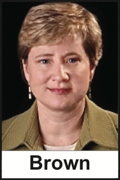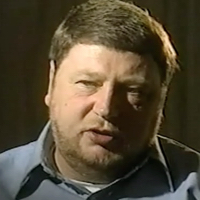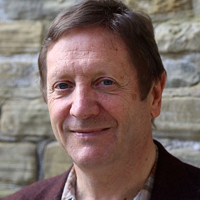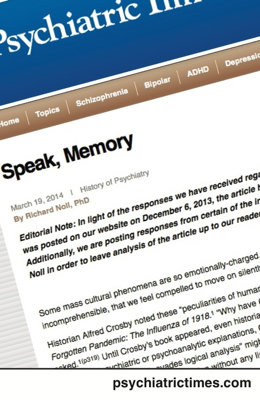Rascals case in brief
In the beginning, in 1989, more than 90 children at the Little Rascals Day Care Center in Edenton, North Carolina, accused a total of 20 adults with 429 instances of sexual abuse over a three-year period. It may have all begun with one parent’s complaint about punishment given her child.
Among the alleged perpetrators: the sheriff and mayor. But prosecutors would charge only Robin Byrum, Darlene Harris, Elizabeth “Betsy” Kelly, Robert “Bob” Kelly, Willard Scott Privott, Shelley Stone and Dawn Wilson – the Edenton 7.
Along with sodomy and beatings, allegations included a baby killed with a handgun, a child being hung upside down from a tree and being set on fire and countless other fantastic incidents involving spaceships, hot air balloons, pirate ships and trained sharks.
By the time prosecutors dropped the last charges in 1997, Little Rascals had become North Carolina’s longest and most costly criminal trial. Prosecutors kept defendants jailed in hopes at least one would turn against their supposed co-conspirators. Remarkably, none did. Another shameful record: Five defendants had to wait longer to face their accusers in court than anyone else in North Carolina history.
Between 1991 and 1997, Ofra Bikel produced three extraordinary episodes on the Little Rascals case for the PBS series “Frontline.” Although “Innocence Lost” did not deter prosecutors, it exposed their tactics and fostered nationwide skepticism and dismay.
With each passing year, the absurdity of the Little Rascals charges has become more obvious. But no admission of error has ever come from prosecutors, police, interviewers or parents. This site is devoted to the issues raised by this case.
On Facebook
Click for earlier Facebook posts archived on this site
Click to go to
Today’s random selection from the Little Rascals Day Care archives….
Click for earlier Facebook posts archived on this site
Click to go to
Today’s random selection from the Little Rascals Day Care archives….
A pediatrician looks back at ‘ritual abuse’
 Feb. 20, 2012
Feb. 20, 2012
Cynthia Brown, medical director of the Mountain Child Medical Evaluation Program at Mission Children’s Hospital in Asheville, was among the first pediatricians credentialed in the subspecialty of child abuse. I asked her to summarize current medical opinion on ritual-abuse day-care cases. Here are excerpts of her response:
“One criticism common to the day-care cases in the ’80s was the inadequate interviewing process used for those children. Some interviewers reportedly made assumptions that abuse had occurred and used leading questions. As a result of these cases, major changes have been made in interviewing protocols. Interviewers go through extensive training and are expected to participate in peer review to assure they are using the protocols correctly.
“In our clinic we meet with the investigators (DSS and law enforcement) and review the child’s initial disclosure….
“We discuss alternative hypotheses….: Could the child have witnessed adult sexual activity accidentally, or through videos or computers? Could the child have been coached? Has the child been inadvertently contaminated by questions asked by a panicked parent?….
“The interview is videorecorded for review by the investigators. It also allows us to evaluate the
caliber of the disclosure and the questioning….
“Several years ago, I spoke with someone involved in one of the day-care cases who now believes there was a kernel of truth in the allegation but that it was obscured by contamination and leading interviews.
“One last thing: The FBI has looked into cases where ritualistic satanic abuse was alleged (not all were in day cares) and has never been able to validate these claims.”
Kelly’s jury was rife with problems not visible at beginning

pbs.org/wgbh/frontline
Dennis T. Ray
Aug. 19, 2016
The jury is empaneled in Farmville, N.C., where Bob Kelly’s trial has been moved because of pretrial publicity in Edenton.
Dennis T. Ray would turn out to be a major mischief-maker both inside and outside the jury room. Ray read aloud from a contraband Redbook article on how to identify child molesters, disobeyed the court’s instruction not to visit the alleged crime scenes, reported that a jailhouse snitch had shared personal knowledge of Kelly’s guilt and displayed a supposed “magic key” referred to by several child witnesses.
 Unfortunately, Judge Marsh McLelland told defense attorneys he didn’t consider Ray’s rogue behavior – or that of a second juror, who dramatically revealed during deliberations that he himself had been abused as a child – to be a “tremendous problem.”
Unfortunately, Judge Marsh McLelland told defense attorneys he didn’t consider Ray’s rogue behavior – or that of a second juror, who dramatically revealed during deliberations that he himself had been abused as a child – to be a “tremendous problem.”
At least three jurors would later express deep doubts about the guilty verdict.
Roswell Streeter, at 28 the youngest juror, would write:
“I’ll say this to the last day of my life, that the evidence that came through the courtroom did not prove that Bob Kelly committed any kind of sex abuse.” He told “Frontline” he had felt intimidated and confused.
Mary Nichols was suffering from advanced leukemia, and Marvin Shackelford had suffered two heart attacks. Both acknowledged afterward that worries about their health had moved them to vote guilty simply to cut short deliberations and go home. It had been nine months since the trial began.
![]()
British child abuse investigators too quick on trigger

uclan.ac.uk
Prof. Andy Bilson
June 5, 2016
“One in five of all children born in a single year in England was referred to social services before they reached age 5…. Up to 150,000 pre-school children were reported over fears of abuse or neglect, most unnecessarily….
“Researchers (at the University of Central Lancashire) said while public and professional vigilance was welcome, the number of alerts received by social services meant staff were wasting their time on innocent families, and making it harder to find the children who are at risk.
“After a series of high profile cases where serious abuse was missed, social workers are under intense pressure… and end up checking up more of the warnings they receive than is necessary, the research suggests.
Lead researcher Professor Andy Bilson said, ‘We have this mantra that says it’s everybody’s job to safeguard children, but what we are doing doesn’t actually safeguard children.”
– From “One in five children referred over suspected abuse” at BBC News (May 25)
Not mentioned in the Central Lancashire report is the subcategory of “satanic ritual abuse” – about which the British are similarly prone to false alarm.
![]()
SRA apologists flushed from their diploma-papered caves
 March 22, 2014
March 22, 2014
“Editorial Note: In light of the responses we have received regarding this article by Richard Noll, PhD, that was posted on our website on December 6, 2013, the article has been reposted with a modification. Additionally, we are posting responses from certain of the individuals mentioned in the article and from Dr. Noll in order to leave analysis of the article up to our readers.”
– From “Speak, Memory,” Psychiatric Times’ reposted version of Noll’s “When Psychiatry Battled the Devil.”
As pointed out at 1 boring old man, PT’s belated reposting omits this passage:
“New (American Psychiatric Association) work groups for the preparation of DSM-IV were formed. Not surprisingly, none of the former members of the DSM-III-R Advisory Committee on Dissociate Disorders was invited to be on the work group for the dissociative disorders.”
Prominent among those uninvitees, of course, were Dr. Richard Kluft and Dr. Bennett Braun, both of whom broke their silence to accept PT’s offer of space to swat back at Noll. Also responding: Dr. David Spiegel, recently described as “the most influential man responsible” for the inclusion of DID/MPD in DSM-V.
And now Noll has gently rebutted – for the most part, refuted – the SRA apologists’ noisy rebuttals.
It’s been 25 years since the fever-breaking Chicago conference – plus another three months while Psychiatric Times searched its soul and its appetite for litigation. Does the vigorous exchange on the PT site mark the beginning of psychiatry’s overdue reexamination of its SRA era?
If so, that discussion must address not only the causes of the moral panic but also its effects: that is, the wrongful and brutal prosecution of hundreds of innocent defendants such as the Edenton Seven – a subject Kluft, Braun and Spiegel managed to mention not at all in their responses. Are they really so oblivious?











0 CommentsComment on Facebook